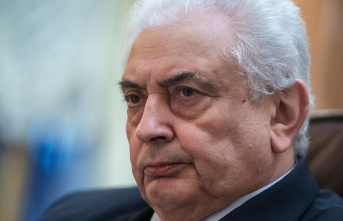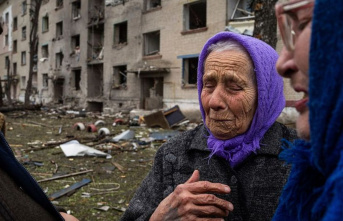Russia is tying its agreement to an extension of the grain deal with Ukraine to calls for Western restrictions on the export of its own agricultural goods to be removed. "If Washington, Brussels and London are really interested in continuing the export of food from Ukraine by sea, they have two months, with the help of the UN, to remove the whole chain of operations related to Russian agricultural exports from the scope of sanctions take," said Moscow's UN representative Vasily Nebensja in New York. Otherwise he doubted a new extension of the agreement.
After the start of its war of aggression against Ukraine, Russia had, among other things, blocked the Ukrainian Black Sea ports with its war fleet and thus stopped grain exports. Since Ukraine is one of the world's largest food exporters, food prices have risen on world markets and at the same time fears of famine in the poorest countries. In the summer of 2022, with the mediation of the UN and Turkey, an agreement was reached to resume grain exports. The agreement, which was originally concluded for 120 days, was extended by a further 120 days in autumn and now by a further 60 days. Otherwise it would have expired this Sunday.
In return, Russia, also one of the largest grain exporters in the world, is demanding the easing of Western sanctions against its own agricultural sector. Food is not on the sanctions list. However, the sanctions restrict the options for loading and insuring ships in general and thus indirectly affect the agricultural sector. The hindrance to Russian food and fertilizer exports is having a negative impact on developing countries, Nebenzya said.











